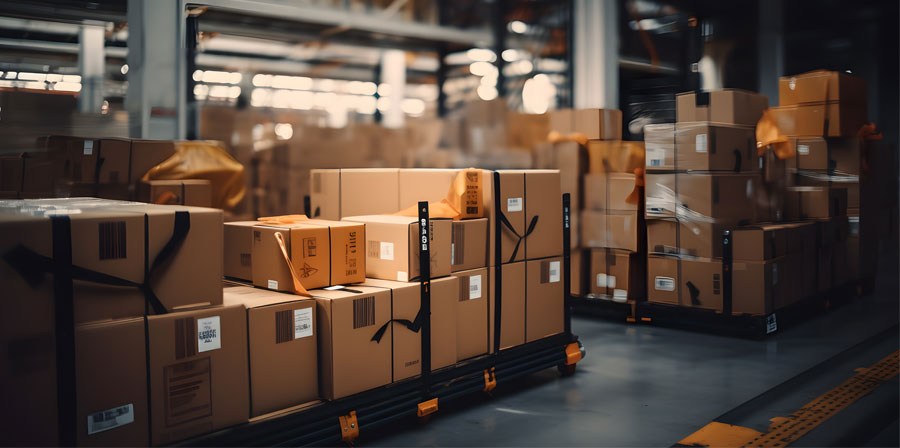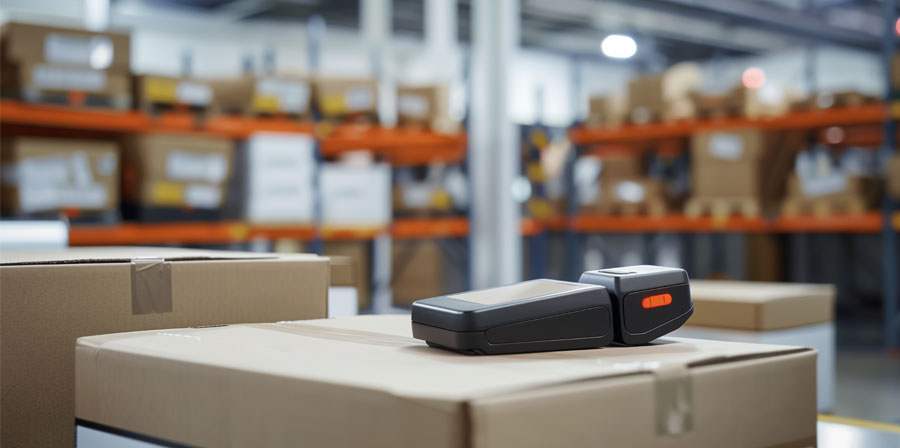In the world of commerce, efficiency is key. This is where B2B 3PL, or business-to-business third-party logistics, comes into play.
B2B 3PL is a crucial component of modern supply chains. It involves outsourcing logistics operations, such as warehousing, distribution, and transportation, to a third-party provider.
This comprehensive guide aims to shed light on the intricacies of B2B 3PL. It will delve into its role, benefits, and how it can streamline operations for businesses.
We'll also explore related topics. These include warehouse solutions, pick and pack fulfillment, and supply chain management.
By the end of this guide, you'll have a thorough understanding of B2B 3PL. You'll also grasp its growing importance in the ever-evolving landscape of global trade.
So, whether you're a business owner, a logistics professional, or simply curious, let's dive into the world of B2B 3PL.
The Role of B2B 3PL in Modern Commerce
B2B 3PL plays a pivotal role in today's commerce environment. It serves as a bridge between manufacturers and consumers, ensuring goods reach their destinations efficiently. As businesses strive for greater efficiency, the demand for 3PL services continues to rise.
These services provide several advantages. Here are some key roles 3PL providers play in modern commerce:
- Streamlining logistics operations.
- Facilitating multi-channel fulfillment.
- Enhancing supply chain management.
3PL providers help businesses meet consumer expectations. They offer innovative solutions tailored to specific needs, which improves customer satisfaction. By doing so, they turn logistics into a strategic advantage.
Collaboration with a 3PL simplifies inventory management and distribution. Businesses enjoy better focus on their core activities, while 3PL handles the complexities of logistics. This leads to both cost savings and improved service levels.
Lastly, B2B 3PL providers bring scalability and flexibility to the table. They allow businesses to scale their operations without the burden of additional infrastructure. This capability is critical in a market where demand often fluctuates.

Evolution and Importance of 3PL Services
The history of 3PL services is rich with innovation and growth. Initially, these services focused mainly on transportation and storage. Over time, their scope expanded to incorporate a range of logistics functions.
Today, 3PL services include warehousing, distribution, and intricate supply chain solutions. This evolution has helped businesses meet the challenges of globalization. As trade became more complex, 3PL services adapted to these new demands.
The importance of 3PL services cannot be overstated. They streamline logistics, reducing costs and improving efficiency. By outsourcing these tasks, companies gain access to expertise and advanced infrastructure.
Additionally, 3PL services support rapid response to market changes. They enable businesses to adapt quickly to consumer demands and seasonal fluctuations.
This agility is crucial in maintaining a competitive edge in the fast-paced global market. Through their continued evolution, 3PL providers remain vital partners for businesses seeking operational excellence.
B2B vs. B2C 3PL Services: Understanding the Differences
B2B and B2C 3PL services serve distinct market needs. B2B 3PL handles business transactions involving bulk shipments. In contrast, B2C 3PL focuses on individual customer orders.
B2B 3PL services often involve larger quantities and fewer deliveries. This approach minimizes handling costs and maximizes efficiencies. Businesses rely on these services to maintain consistent supply lines.
In B2C 3PL, the focus is on prompt and accurate delivery of products to consumers. This demands efficient pick and pack fulfillment processes. Speed and precision are crucial to meet high customer expectations in retail.
Additionally, the technology used in B2B and B2C logistics varies. B2B often utilizes integrated systems for inventory management and distribution. Meanwhile, B2C requires robust ecommerce platforms to handle high volumes of small orders. Understanding these differences helps businesses choose the right logistics solutions.
Comprehensive 3PL Services: Transportation, Warehousing, and Distribution
3PL providers offer an extensive range of logistics services. These include transportation, warehousing, and distribution. Each service is crucial for efficient supply chain management.
Transportation involves moving goods from one location to another. It includes domestic and international shipping options. Reliable transportation ensures timely delivery.
Warehousing solutions offer secure storage for inventory. They manage stock levels with advanced inventory management systems. Efficient warehousing reduces the risk of shortages or excess stock.
Distribution focuses on getting products to their final destination. It encompasses strategies for efficient order fulfillment. Distribution networks are optimized for quick and accurate delivery.
Here's a quick rundown of comprehensive 3PL services:
- Transportation: Domestic and international shipping
- Warehousing: Storage and inventory management
- Distribution: Order fulfillment and delivery logistics
Each service integrates seamlessly with the others. This integration streamlines operations and enhances customer satisfaction. By leveraging these 3PL services, businesses can boost their competitiveness.

Outsourcing Logistics: The Benefits of Partnering with a 3PL Provider
Outsourcing logistics to a 3PL provider can transform business operations. It allows companies to focus on core activities while experts handle logistics. This leads to enhanced operational efficiency.
One significant benefit is cost reduction. 3PL providers leverage their networks to negotiate better rates. By outsourcing, businesses can avoid large capital expenditures for logistics infrastructure.
Flexibility is another advantage of using a 3PL provider. They offer scalable solutions that adapt to changing business needs. This scalability is especially vital during peak seasons or market shifts.
Moreover, partnering with a 3PL can improve customer service. With advanced technology and processes, 3PLs ensure faster and more reliable deliveries.
Enhanced logistics efficiency often results in higher customer satisfaction.
Technology's Impact on B2B 3PL: Inventory Management and Tracking Systems
In the realm of B2B 3PL, technology plays a pivotal role. Advanced systems streamline inventory management and enhance visibility across the supply chain. This helps businesses maintain optimal stock levels.
With real-time tracking systems, companies can monitor their inventory like never before. These systems offer precise data, reducing the risk of stockouts and overstock. As a result, businesses achieve better inventory control and operational efficiency.
Furthermore, technology in 3PL enhances accuracy in order fulfillment. Automated systems minimize human errors, ensuring correct and timely shipments. This level of precision is crucial in maintaining customer trust and satisfaction.
Lastly, modern inventory systems provide valuable insights. Data analytics enables businesses to make informed decisions and optimize strategies. By leveraging these technological advancements, companies can stay competitive in an ever-evolving market.
Scaling Your Business with 3PL: Handling Increased Order Volumes and Ecommerce Growth
In today's fast-paced market, businesses must adapt quickly to rising demands. B2B 3PL providers offer the scalability needed to manage increased order volumes efficiently. This flexibility is vital for sustaining growth.
Partnering with a 3PL allows businesses to handle peak seasons seamlessly. As order numbers fluctuate, 3PL providers adjust resources accordingly. This ensures that businesses can meet customer demands without overextending their own resources.
Ecommerce growth has intensified the need for effective logistics management. Multi-channel fulfillment becomes more challenging as companies expand online.
A 3PL provider streamlines this process, ensuring efficient operations across all sales channels.
Furthermore, 3PL services help businesses tap into new markets. By managing logistics, they allow companies to focus on core competencies. This partnership provides the infrastructure needed for expansion without the burden of logistics management, enabling a strategic focus on scaling.
Pick and Pack Fulfillment: A Crucial Service in B2B Transactions
Pick and pack fulfillment is essential in B2B operations. This service involves selecting and packaging products for shipment. It's critical in maintaining efficiency and accuracy in order processing.
Efficient pick and pack services reduce errors and save time. With streamlined procedures, businesses can fulfill orders promptly. Timely delivery enhances customer satisfaction and strengthens business relationships.
Moreover, 3PL providers specialize in this service, offering tailored solutions. They employ advanced technology to optimize the process. This level of expertise ensures high-quality fulfillment, vital in competitive markets where precision is key.
Overcoming Logistics Challenges: How 3PL Can Help
Businesses often face significant logistics challenges. Managing supply chains can become complex and demanding. This is especially true as operations expand.
3PL providers offer expertise in tackling these issues. They bring specialized knowledge and experience to the table. This aids in navigating logistical intricacies effectively.
Outsourcing logistics to a 3PL can provide flexibility. It allows businesses to adapt to market changes swiftly. Furthermore, it reduces the burden of managing logistics internally.
By leveraging a 3PL's resources, businesses can focus on growth. This partnership ensures streamlined operations. Thus, enterprises can enhance productivity and customer satisfaction.
Selecting the Right B2B 3PL Provider: Factors to Consider
Choosing the right B2B 3PL provider is crucial for success. It involves evaluating several important aspects. Not all providers offer the same level of service.
Businesses should assess a provider's industry expertise. A 3PL with relevant experience understands specific market needs. This ensures better alignment with your logistics goals.
When selecting a provider, consider their technology offerings. Advanced tracking and inventory systems are vital. These tools provide real-time insights into supply chain performance.
Additionally, evaluate the provider's scalability and flexibility. A capable 3PL can adapt to changing business volumes. This ensures they can support your company's growth.
Key factors to consider:
- Industry experience and market understanding
- Technology and data analytics capabilities
- Scalability and flexibility to handle growth
- Reputation and track record in logistics services
By carefully examining these criteria, businesses can make informed decisions. The right 3PL partner can significantly enhance operational efficiency.

The Future of B2B 3PL: Trends and Innovations
The landscape of B2B 3PL is evolving rapidly. Technological advancements are driving many of these changes. Businesses must keep pace with emerging trends to stay competitive.
Artificial intelligence (AI) is becoming integral to 3PL operations. AI enhances forecasting and decision-making processes. This results in more efficient supply chain management.
Another trend is the increasing focus on sustainability. Eco-friendly logistics practices are gaining importance. 3PL providers are adopting greener solutions to minimize carbon footprints.
Multi-channel fulfillment is also transforming the industry. Customers expect seamless service across various platforms. 3PLs are adapting to meet these diverse demands.
By embracing these innovations, 3PL providers can offer greater value. Businesses can benefit from improved efficiencies and cost savings. The future holds promising opportunities for both parties.
Conclusion: The Strategic Advantage of B2B 3PL Partnerships
Partnering with a B2B 3PL provider offers many benefits. It allows businesses to streamline their operations. This leads to enhanced efficiency and reduced costs.
By outsourcing logistics, companies can focus on core activities. They gain access to expert services and cutting-edge technology. This fosters growth and drives competitive advantage.
The dynamic nature of global trade demands flexibility. A reliable 3PL partnership offers scalability to meet fluctuating demands. Embracing 3PL solutions ensures long-term success and resilience.
How Jillamy Can Help
Jillamy specializes in B2B 3PL solutions that simplify complex operations and empower businesses to grow. Our comprehensive services include warehousing, inventory management, packaging, and distribution, all designed to fit your unique needs. With a strong nationwide footprint, we help businesses scale efficiently while managing seasonal fluctuations and operational challenges with ease. Whether you're expanding your reach or refining your processes, Jillamy’s expertise ensures seamless and reliable support at every stage.
When you partner with Jillamy, you're not just getting a service provider—you’re gaining a strategic partner invested in your success. Our tailored solutions focus on reducing costs, improving efficiency, and allowing you to focus on what matters most: achieving your business goals. From small businesses to large enterprises, we offer the tools, expertise, and commitment to help you navigate today’s dynamic market with confidence. Together, we can build a smarter, more efficient path forward. Contact Jillamy today to learn how our B2B 3PL solutions can drive your business success


